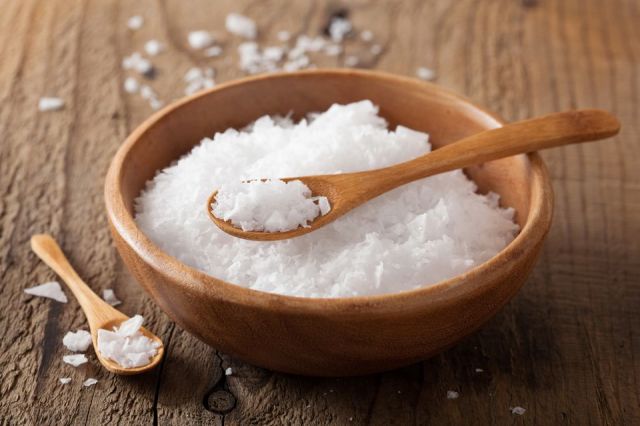Salt is a mineral consisting primarily of sodium chloride a chemical compound belonging to the larger class of salts. Salt in its natural form as a crystalline mineral is known as rock salt or halite. Salt is present in vast quantities in seawater, where it is the main mineral constituent.
Salt is essential for life in general, and saltiness is one of the basic human tastes. Salt is one of the oldest and most ubiquitous food seasonings, and salting is an important method of food preservation.
Some of the earliest evidence of salt processing dates to around 6,000 BC, when people living in the area of present-day Romania boiled spring water to extract salts; a salt-works in China dates to approximately the same period. Salt was also prized by the ancient Hebrews, the Greeks, the Romans, the Byzantines, the Hittites, Egyptians, and the Indians. Salt became an important article of trade and was transported by boat across the Mediterranean Sea, along specially built salt roads, and across the Sahara on camel caravans. The scarcity and universal need for salt have led nations to go to war over it and use it to raise tax revenues. Salt is used in religious ceremonies and has other cultural and traditional significance.

